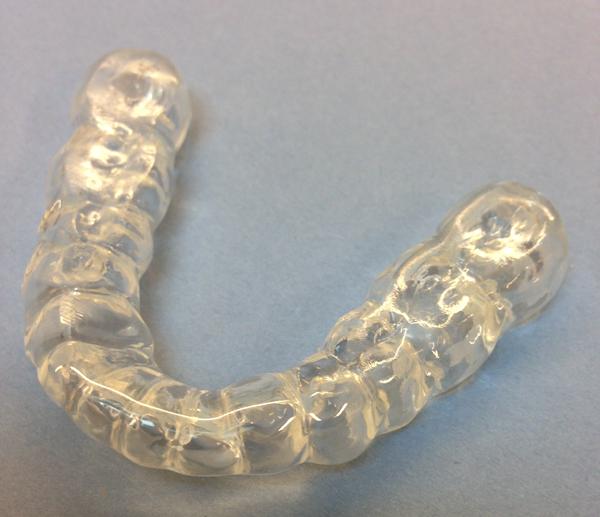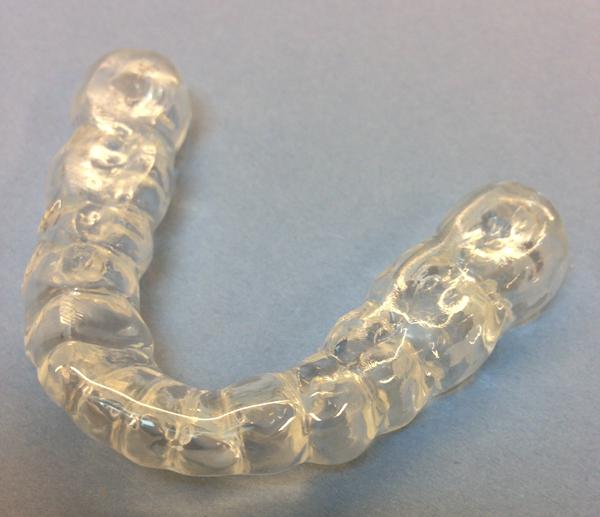While many dental problems are quite obvious to patients (e.g. a cavity can be easily seen on an x-ray, an abscessed tooth is generally quite unpleasant, etc.) there is one common condition that can be extremely damaging which often goes undiagnosed and undetected for years: teeth grinding. The severity of teeth grinding can range from mild to severe, and treatments for such can be simple or quite involved. In some cases, teeth grinding can lead to serious pain, persistent headaches, cracked teeth, jaw disorders, and other symptoms.
Grinding occurs when teeth experience excessive horizontal forces. Teeth are built for handling strong vertical forces, such as during chewing, but they have problems with constant and excessive sideways forces. Dentists refer to teeth grinding as �bruxism.� Most people who have a problem with bruxism are not even aware that they have an issue that needs addressed. Although some people grind their teeth and clench their jaws during the day, most are aware of these negative habits and can take appropriate measures to control them. A more serious aspect of bruxism is what happens when people are asleep�the subconscious mind takes control over the jaw muscles and gnashing and clenching episodes ensue for significant periods of time during the night.
Like with most medical issues, bruxism is best treated when diagnosed early, before damage has become significant. There are tell-tale signs that indicate one may be a night grinder, such as sensitive teeth, chipped cusps and teeth edges, broken fillings, jaw joint soreness, excessive wear patterns on teeth, and worn areas on the sides of teeth near the gum line. Because bruxism is a slow process that only becomes evident over months or years, and because it happens primarily during the night, most patients are unaware that they have this condition.
If you suspect that you may be grinding your teeth, the best thing you can do is have a discussion with the dentist and get a thorough dental exam. Significant damage to teeth from bruxism may require crowns, fillings, and extensive restorative work to fix, but if the issue is diagnosed and intercepted in its early stages, a night guard and slight habit modification may help you avoid a lot of dental work and associated costs.
Night guards are similar to orthodontic retainers, but they cover the chewing surfaces of teeth. Most patients wear a night guard either on the bottom or top teeth only, and when made in our Orem dental office by an experienced dental technician, they fit well, feel comfortable, and protect teeth from grinding. Be aware that �Boil-and-bite� night guards may be obtained online or in stores for a cheaper cost than dentist-made night guards, but they are much less comfortable, do not fit the teeth and bite as well as professionally made guards, and can create other jaw issues.
Nicolas K. Young, DMD









